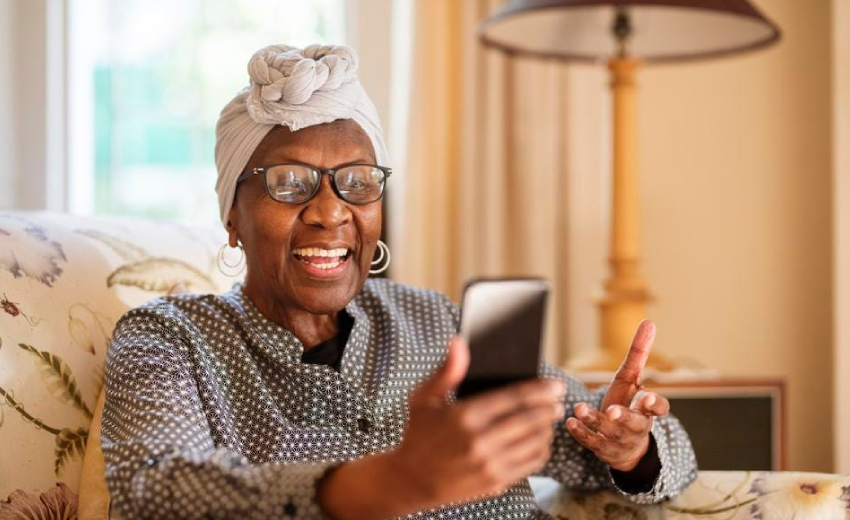
Importance Of Technology In Older Adults During Pandemic
There is no doubt that the Covid-19 crisis has negatively affected seniors’ ability to have fun and live fulfilling lives. As seniors remain mostly in their homes, devices and the internet are increasingly helping them. These have helped them stay in touch with family members and friends.
Despite the great internet divide, senior citizens are gradually increasing their participation in online activities. Several own smartphones and are using the internet more often than ever before. This article shares some crucial insights from Pulse, a leading IVR service provider in India, on how seniors gradually change the telecom industry. Read on to know more.
How Are Seniors Adapting To The Current Technology Craze?
Seniors are drawn to the internet by concerns about their health and exercise. It has been observed that three out of ten seniors downloaded Corona-related apps and used remote consultation apps during the ongoing Corona crisis. Seniors also have had success ordering medical supplies through the internet, and the crisis has influenced this behaviour. Many seniors also believe that online health activities can replace going to the gym.

Technology’s Appeal To Seniors
Cluster analysis identified five senior segments, including the ‘old traditionalists’ and the ‘striving pensioners’. They are:
- The ‘old traditionalists’ own fewer devices than the general population, who are more lonely.
- The ‘struggling pensioners’ are more likely than the average senior to live alone, have health problems, and watch television more frequently.
- Twenty-five per cent of seniors are ‘social grandparents’, and they spend more time socialising with their peers than the average senior.
- Three in 10 seniors are married, have a good education, and consume more than average.
- The mature life connoisseurs are 13 per cent of the seniors aged 65 to 74 years. They are aware of the effects of climate change, and they are interested in technology.
More older techies use the internet more than traditional seniors. They are also avid social media users than traditional seniors. Older techies are more likely to benefit from future technological advancements, such as artificial intelligence and mobile 5G technology. The use of technology by older adults is increasing, and this trend will continue in 2021 and beyond.
The Covid-19 Crisis And Technology Use Among The Elderly
During the COVID-19 pandemic, several older people overcame obstacles using technology that helped them stay connected after a lockdown. It was witnessed that older adults are increasingly reliant on technology to connect with friends and family in the digital age. However, some older people have mixed feelings about digital technology, and they express a lack of confidence in their abilities when it comes to using them.
Seniors are rapidly adopting technology, which is encouraging, especially when one considers how it can assist them in maintaining their overall health during the COVID-19 pandemic. Digital technology can be a challenge, but many ways to overcome it. Many institutions help older adults learn to use technology to feel more connected and keep loneliness at bay. Some use instruction manuals, others use trial and error, and others use group efforts.
It is necessary to end stereotyping of older people, promote the benefits of technology, and provide customer service that is knowledgeable about older people’s issues. Telehealth services are now rampantly popular to assist seniors in maintaining their access to medical and preventive care. With telehealth services, seniors can still receive health services and health coaching over the phone.
Benefits Of Technology In Senior’s Life
Various technologies, including IVR services, greatly benefit older adults. Seniors can use health apps to track their progress toward a healthier lifestyle. Once they feel comfortable, they can progress to more substantial health-tracking tools. Here are other benefits of using technology in a senior’s life.
- Older people can use digital technologies to stay in touch with family members, stay up to date with the latest information, and overcome the feeling of being isolated.
- Voice assistants can perform tasks more cost-effectively than other types of technology.
- Wearable technology is being developed to assist older adults in collecting vital health data. This technology can be integrated into smart tablets for senior citizens and alert caregivers if an individual wanders away.
- If the resident does not want to wear a wearable, caregivers can use other light detection tools and ranging technology.
- 5G technology will improve local and global connectivity, but it requires a robust infrastructure. It can transform healthcare delivery by increasing speed and capacity while decreasing latency.
Wrapping up:
Incorporating technology into seniors’ lives has many advantages. However, it will take a combination of government and the private sector to get older people online. Private sector participation needs to be encouraged and rewarded to make this effort a success.


